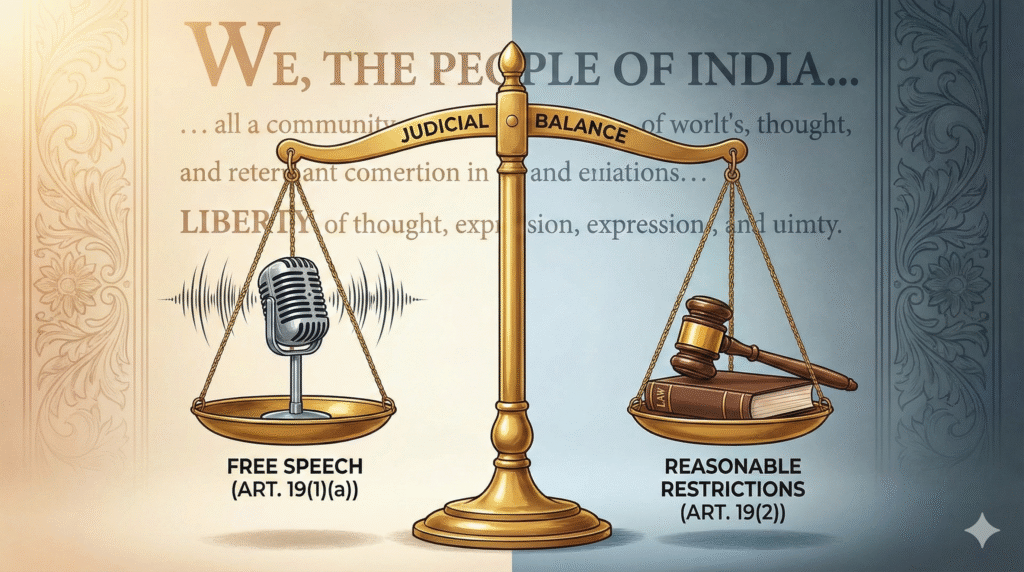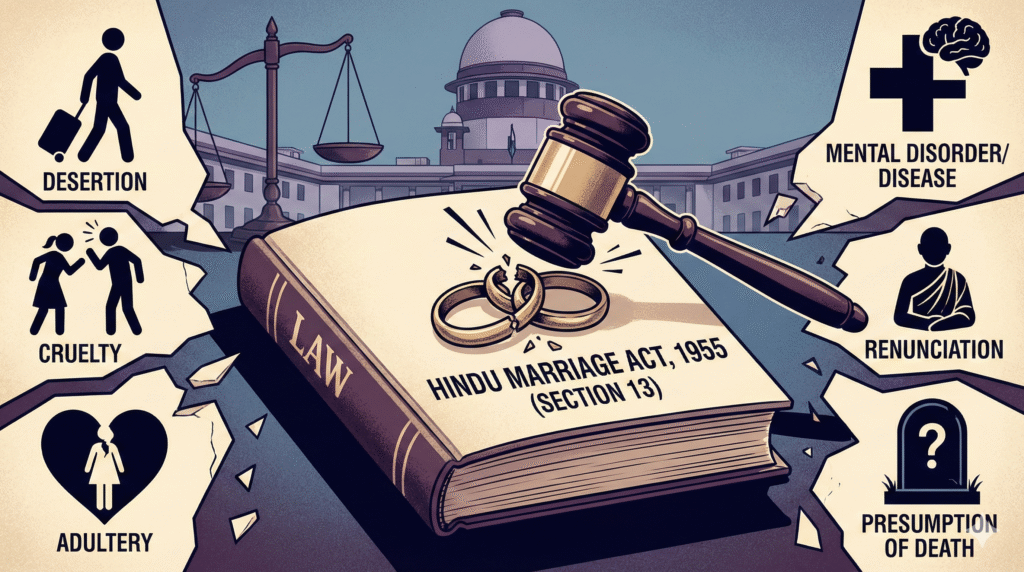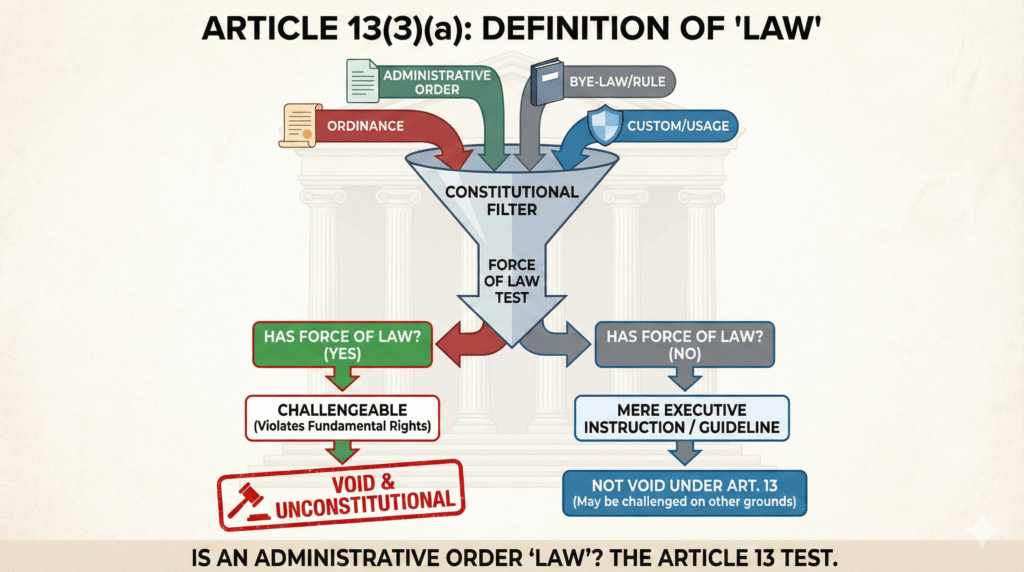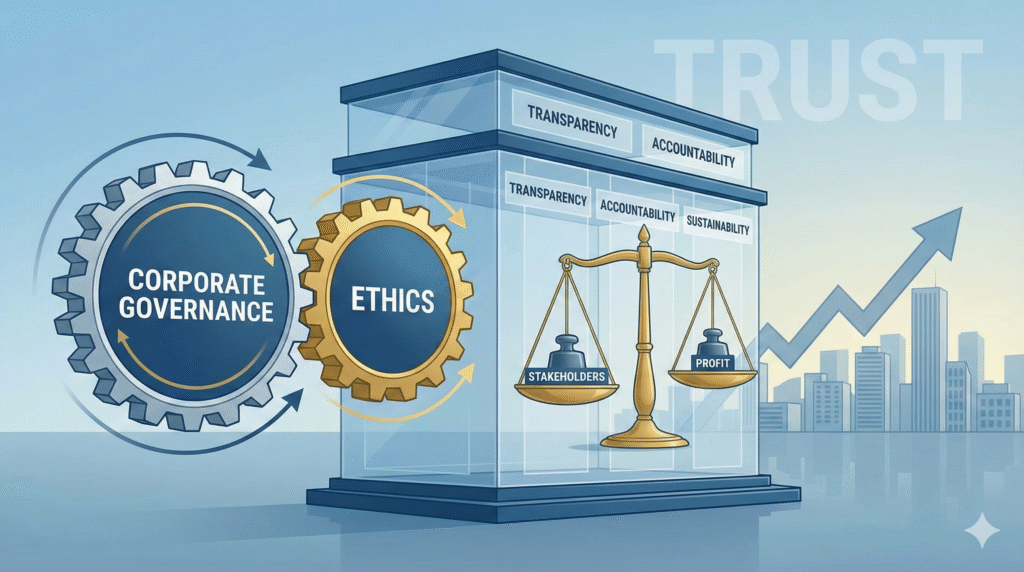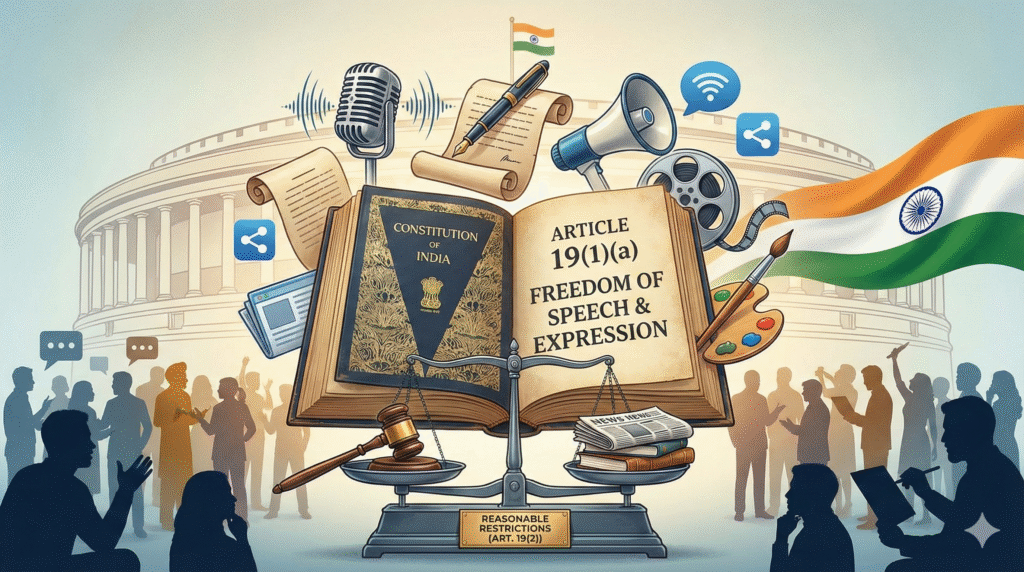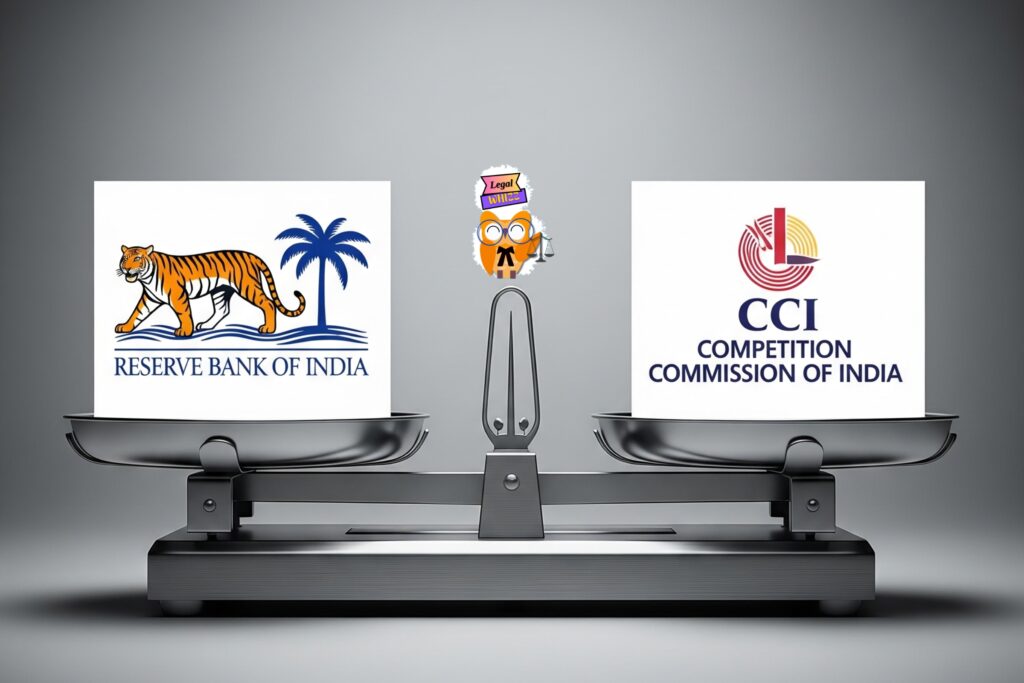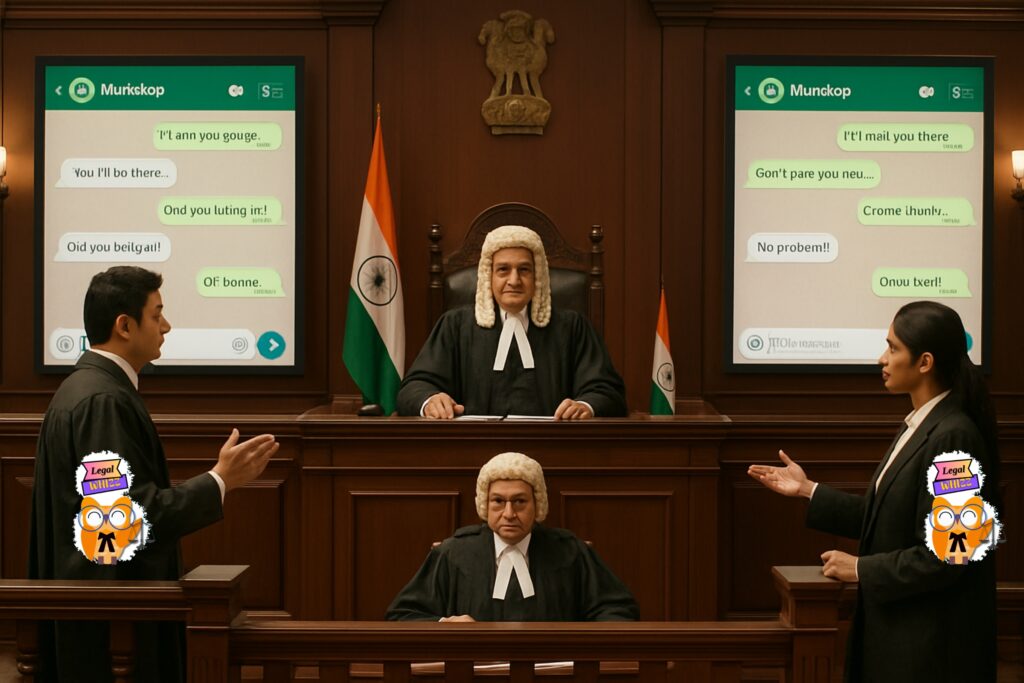ARTICLES & BLOGS

Your One-Stop Hub for Legal Insights & Expert Opinions!

Stay Updated on the Latest in Law
Read the latest articles on legal trends, case law analysis, and research insights. Contribute your own work and be part of the Legal Whizz community!
Freedom of speech and expression occupies a sacred space in the Constitution of India. Often described as the heartbeat of democracy, it empowers citizens to speak without fear, question the government, and dissent against the majority. However, this liberty is not unbridled. By: Rudra Pratap Singh…
The institution of marriage holds a significant, almost sacramental place in Indian society. However, the enactment of the Hindu Marriage Act, 1955 (HMA) marked a paradigm shift, moving Hindu marriage from an indissoluble union to one that can be legally dissolved under specific circumstances. By: Rajnandini…
By Pronnati Rajasvi In the realm of Indian Constitutional law, the definition of “Law” is the gateway to justice. If an action by the state does not qualify as “Law,” it cannot be challenged for violating Fundamental Rights under Article 13. A common question that arises…
The Nexus Between Corporate Governance and Ethics WRITTEN BY:NIBEDITA BEHERA Corporate governance and business ethics are not mutually exclusive concepts; rather, they work in close synergy to influence how Indian companies operate, govern, and make critical decisions. While governance provides the framework for accountability, ethics sets…
Freedom of Speech and Expression Article 19 Written By:- Bhargavi Rajurkar Freedom of speech and expression is a fundamental right that allows an individual or a community to express their thoughts, opinions, and beliefs without the fear of punishment, censorship, or retaliation. It envisages various forms…
Freedom of Speech in India: Balancing Rights & Hate Speech Laws (A 2025 Guide) Authored by: Bhumika Tewari As a fourth-year student at Vasudev College of Law, Bhumika Tewari is a passionate legal learner with a keen interest in criminal and corporate law. She is translating…
Judicial Pendency in India: The 51 Million Case Crisis & How to Fix It Authored by: Yash Johri As a final-year BBA-LLB student at JECRC University, Jaipur, Yash Johari is passionate about the intricate fields of criminal, international, and environmental law. Yash translates this passion into…
AUTHORED BY ADITYA GARG As a third-year BA LLB student at the University of Mumbai and a Company Secretary Executive Programme candidate (having cleared Group 2), I am Aditya Garg. My academic interests are primarily in Corporate and Commercial Laws, with a specific focus on Corporate…
Explore the complex landscape of bank consolidation in India. Understand the motives, the legal framework under the Competition Act, and the critical jurisdictional conflict between the RBI and CCI.
Using WhatsApp chats as evidence in Indian courts has become increasingly common, transforming legal proceedings from civil disputes to criminal cases. As WhatsApp evolves from a personal chat app to a cornerstone of communication, a critical question arises for millions: are these WhatsApp chats as evidence…

![Freedom of Religion & Gender Equality: Myth or Reality? [Legal Analysis]](https://legalwhizz.com/wp-content/uploads/2025/11/Scales-of-Justice-balancing-Religious-Freedom-and-Womens-Rights-1024x572.png)
